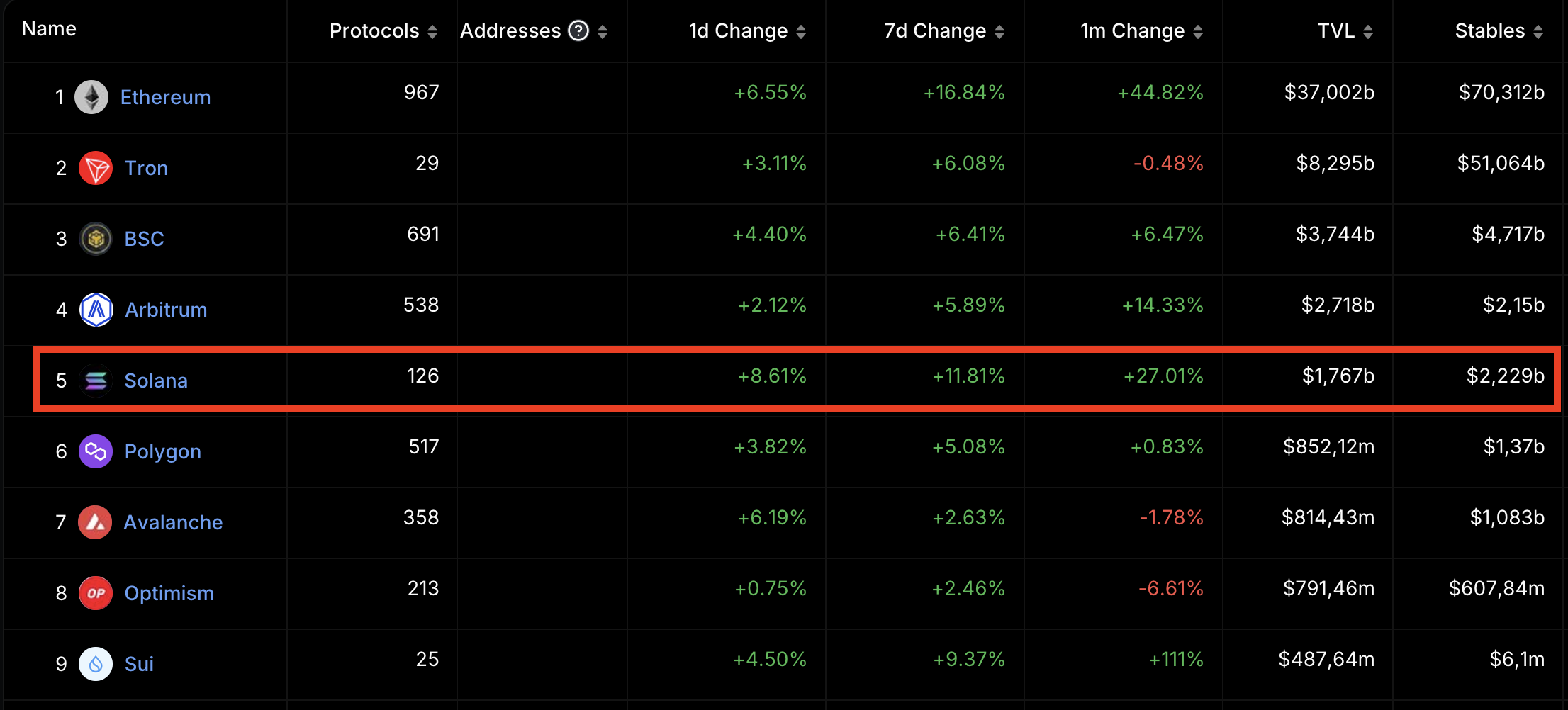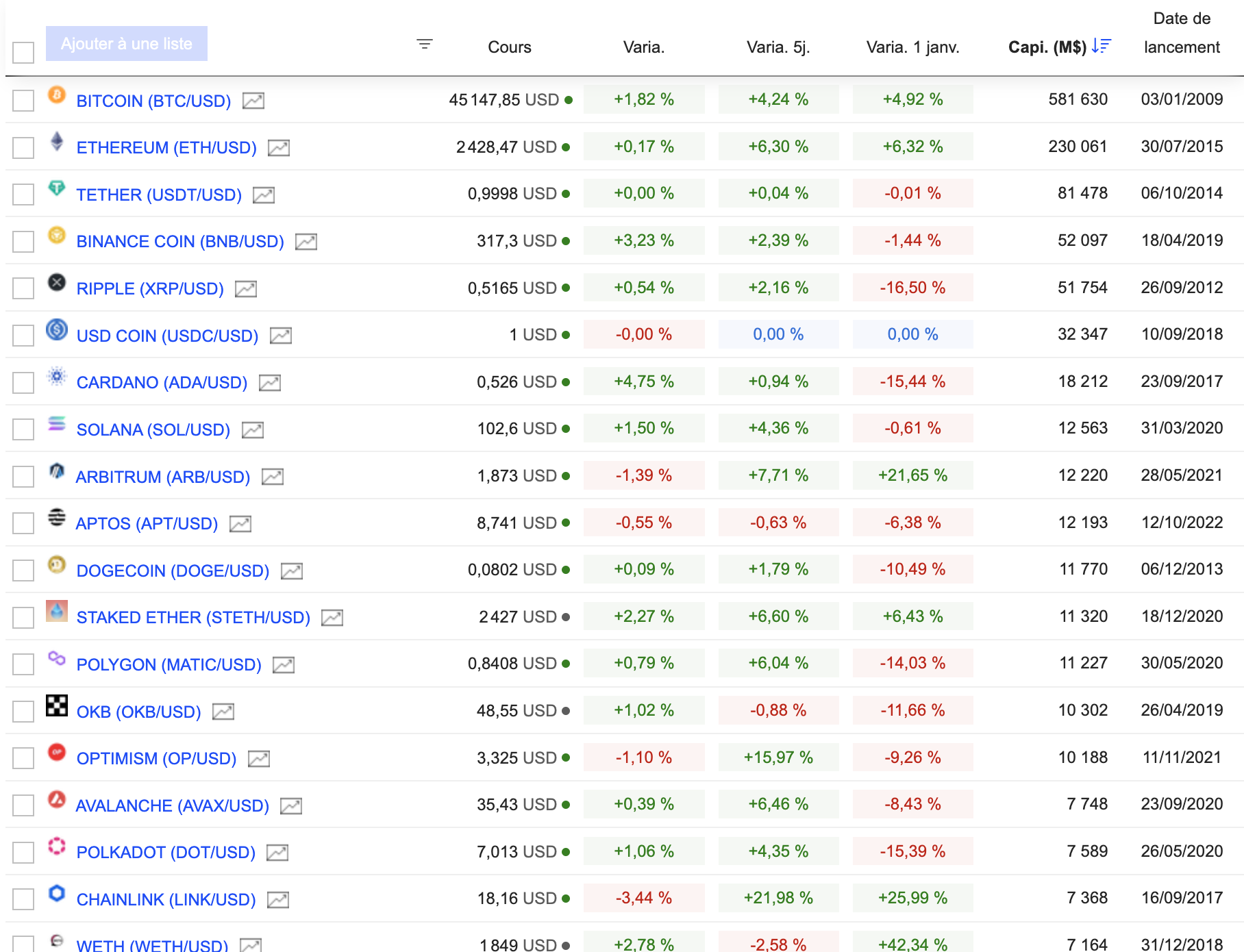Block 1: Key news
Bakkt bankrupt?
Bakkt, a key crypto infrastructure company working with giants such as Starbucks, Mastercard and Google, has revealed that it is experiencing financial difficulties, and is considering possible bankruptcy in the coming months. In a 30-page document submitted to the SEC, Bakkt outlined its operating losses and cash management as the main causes of its financial uncertainty, while exploring financing options, including a potential $150 million capital raise, to ensure its survival.
Thailand: Operation seduction of crypto-investors
Thailand has announced VAT exemption for all cryptocurrency and digital asset transactions from January 1, 2024. The move is part of the country's drive to become a global hub for the digital asset industry. By 2023, the country had also distributed the equivalent of $280 of its own central bank digital currency (MNBC) to every Thai citizen.
MetaMask x Robinhood
MetaMask and Robinhood have announced a partnership to integrate Robinhood Connect functionality into MetaMask, enabling MetaMask users with a Robinhood account to benefit from the exchange's liquidity directly from their Web3 wallet. This collaboration marks a significant step towards facilitating access to Web3 for the general public, in particular by offering a smoother experience for funding custody portfolios via Robinhood.
Craig Wright: Satoshi or Faketoshi?
Craig Wright, nicknamed "Faketoshi" for his unproven claims to be Satoshi Nakamoto, the creator of Bitcoin, must now prove his identity in the UK High Court, following a lawsuit initiated by the Crypto Open Patent Alliance (COPA). The legal action is aimed at challenging Wright's numerous claims and attempts to patent Bitcoin-related technologies, which has led to criticism and obstacles for the crypto community. The trial, which has been criticized for the allegedly insufficient and falsified evidence presented by Wright, could have major repercussions for his numerous court cases if the court determines that he is not the real Satoshi Nakamoto. The trial could last a month.
Block 2: Crypto Analysis of the week
Solana, one of the leading blockchains in terms of valuation, faced major disruptions and operational challenges on Tuesday. To put it simply, transaction block production was completely interrupted for 4 hours. The technical team rushed to intervene and launch repair work at 6 a.m., in order to deploy an essential software update to reactivate the paused network. The system only resumed normal operation at around 10 a.m., after the validators responsible for 80% of the SOLs in play had adopted a new version of the software, enabling the network to restart.
But this type of incident is nothing new. Solana has experienced similar outages every year since 2021, with some reports indicating as many as 11 outages in the last two years, including minor glitches. After all, Solana's core network continues to operate in what is described as a "beta" phase, a term generally applied to software undergoing final testing by a limited user base before its official release.
"Engineers from across the ecosystem are investigating an outage on the mainnet-beta network," reads the Solana team's incident report. Although Solana has therefore not officially emerged from its beta-testing phase - designed for identifying bugs and evaluating performance under real-life conditions - the prolonged use of the term "beta" increasingly seems to be an excuse for persistent problems.
As a reminder, for a blockchain "in beta", Solana ranks as the fifth largest decentralized finance blockchain (DeFi) by total locked value (TVL), with around $1.7 billion in assets across its applications.

DefiLlama
The SOL token is among the top five cryptocurrencies in terms of market capitalization, with almost $42 billion, highlighting the dynamism of its developer ecosystem.
Solana's architecture is also forward-thinking: it features a "monolithic chain" doped with a "Proof-of-History" algorithm to boost transaction processing. And updates are in the pipeline to make programming even more fun and the user experience even more delightful.
On the community side, it's a real development party at Solana! The Solana Foundation, which lacks neither heart nor ambition, is working hard to ensure that everyone adopts the technology. Solana has opened a store in the middle of New York City, so that the curious can get their hands on this "futuristic technology", and, as the icing on the cake, the organization has launched its own smartphone, because why not? In fact, this week, Solana's teams confirmed the arrival of a second mobile, dubbed "Chapter 2". The latter is due for release in 2025, and no less than 60,000 pre-orders have already been taken, according to Solana's communication.
60,000 preorders and counting...
A heartfelt thank you to this amazing community for your unwavering support and belief in the vision. You are the core of the #Chapter2 journey.
Secure your spot for #Chapter2 now https://t.co/LMnynuZBhW pic.twitter.com/gPJvoupsHc
Sam Bankman-Fried, ex-boss of FTX, was one of Solana's main backers, which contributed to severely damaging the blockchain's image. But more than a year after FTX's collapse, Solana remains one of the top 5 most valuable blockchains.
However, presenting the project as a work in progress, mentioning that the core network is in beta, while aggressively seeking global adoption raises concerns about Solana's build.
The absence of a clear timetable for exiting the "beta" phase, despite Solana's operational status as a fully accessible core network, suggests that the term may no longer be applicable. Given that this is a live mainnet, as open and accessible as any other blockchain, and that users have no obligation to submit feedback or find bugs to report to the developers, it could be argued that the term "beta" is obsolete. Other blockchains such as Ethereum, Zcash and Cardano have managed to update their core algorithms without any downtime or return to beta status.
Block 3: Gainers & Losers
(Click to enlarge)

Block 4: Things to read this week
Trial of Bitcoin's true creator under way (Wired)
Meet me in the Eternal City (The Atlantic).
Bitcoin ETFs launch promotional blitz after Google allows ads (Financial Times)


 Google
Google
 Apple
Apple
 By
By 

















